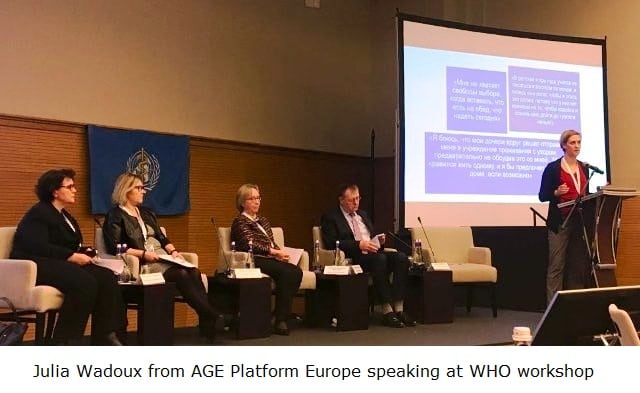
From national to global perspective
In order to take stock of the progress made so far on active and healthy ageing in the WHO European Region and to pave the way for future progress, notably to feed in the forthcoming Decade of Healthy Ageing (2020-2030), a workshop was organised in Moscow 26-27 February 2019. More than 60 participants coming from 32 Member States or from European and International Organisations, as well as from the academic sector or Civil Society Organisation met to exchange about their work.

The two-day event strongly demonstrated how much interconnection from the local to the global level is crucial to make progress toward active and healthy ageing. While the actions at local level are playing a key role to meet the needs and concerns of older persons, the need for a strong policy framework at national and global level is important to support the work at grassroots level.
AGE has a longstanding relationship with the WHO both at global and European Level. It has been officially recognized as an affiliated programme to the WHO Global Network of Age-Friendly Cities and Communities, and collaborated on a regular basis with the Regional Office for Europe notably on long-term care issues.
For more information, please contact Julia Wadoux, Julia.wadoux@age-platform.eu






